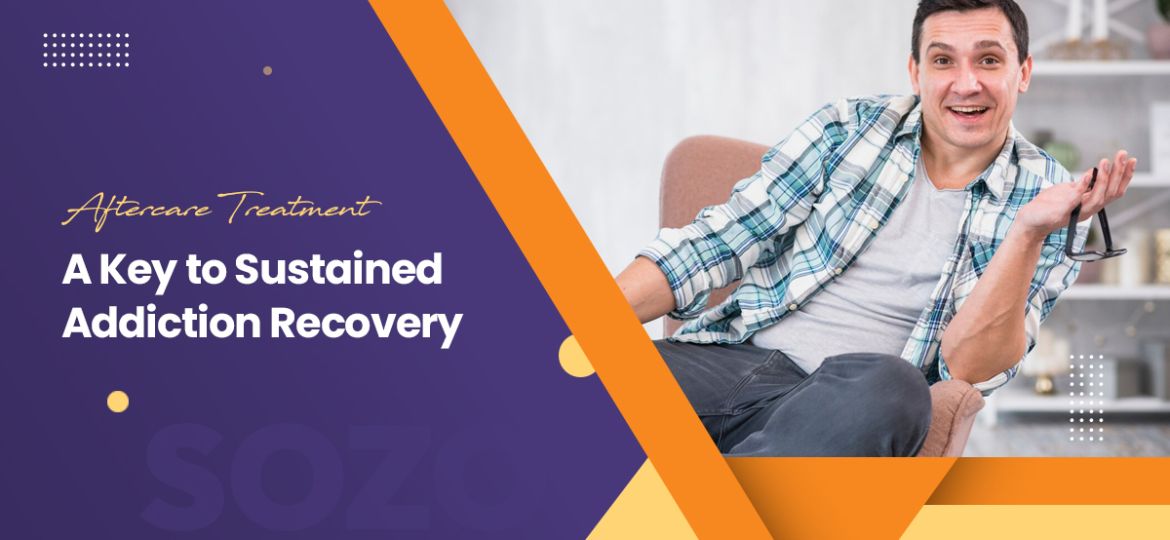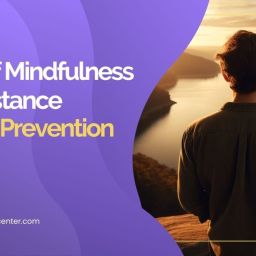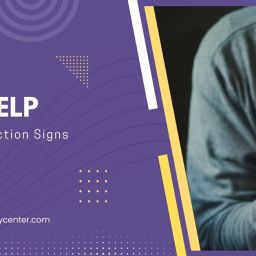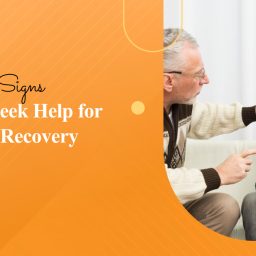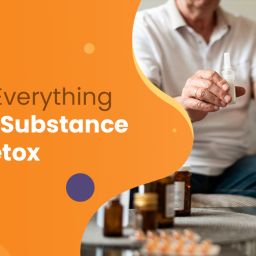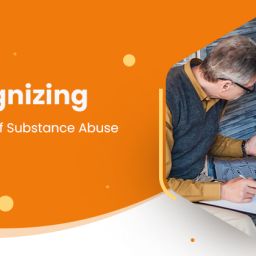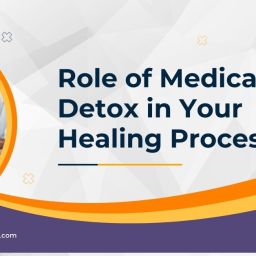Frequently Asked Questions
What Are Aftercare Services?
Aftercare services are essential support programs provided following treatment for addiction. They include counseling, support groups, and resources to help individuals maintain sobriety and navigate challenges in their recovery journey.
How Long Is a Typical Aftercare Program?
The length of a typical aftercare program can vary, but it generally lasts from several weeks to several months, depending on individual needs and circumstances. Programs can be tailored for extended support to enhance long-term sobriety.
What Does an Aftercare Plan Include?
An aftercare plan includes personalized support services tailored to individual needs, such as ongoing therapy, support group participation, relapse prevention strategies, and access to resources that promote long-term sobriety and healthy living post-treatment.
Does Addiction Recovery Get Easier?
Addiction recovery often becomes easier over time as individuals develop coping strategies and support systems. With commitment and ongoing support, like aftercare, many find that challenges diminish and a healthier lifestyle emerges.
Is Addiction Curable?
The question of whether addiction is curable arises from the understanding that addiction is a chronic disease. While it may not be completely curable, it is manageable, and individuals can achieve long-term recovery through ongoing treatment and support.
How Long Does Substance Abuse Treatment Last?
The duration of substance abuse treatment varies based on individual needs but typically lasts from 30 days to several months. Factors such as the severity of addiction and personal progress will influence the length of the program.
Do Substance Abuse Programs Work?
Substance abuse programs are effective in helping individuals overcome addiction. With tailored therapies, support, and aftercare services, these programs significantly increase the chances of long-term sobriety and recovery from substance use disorders.
What Are Aftercare Programs?
Aftercare programs are structured support systems designed to assist individuals in maintaining sobriety after completing addiction treatment. These programs provide ongoing resources, counseling, and community connections to promote long-term recovery and prevent relapse.
How Addiction Affects Family?
Addiction significantly affects families by creating emotional distress, strained relationships, and financial instability. Family members may experience anxiety, guilt, and confusion, which can lead to further challenges in communication and support within the household.
What Is the Recovery Aftercare Plan?
The recovery aftercare plan is a structured approach designed to support individuals following addiction treatment. It includes ongoing counseling, support groups, and resources tailored to help maintain sobriety and prevent relapse.
Is Addiction Recovery Possible?
Addiction recovery is indeed possible. With the right treatment, support, and commitment to aftercare, individuals can overcome addiction and achieve lasting sobriety. SOZO Addiction Recovery Center provides essential resources to guide this transformative journey.
How Addiction Affects Others?
Addiction significantly affects others, including family, friends, and colleagues, often resulting in emotional distress, strained relationships, and increased responsibilities for loved ones. The ripple effect can create an environment of anxiety and instability for those close to the individual struggling with addiction.
Why Is Aftercare Important in Recovery?
The importance of aftercare in recovery lies in its ability to provide ongoing support and resources, which significantly enhances the chances of maintaining long-term sobriety and preventing relapse after initial treatment.
What Is Substance Abuse Aftercare?
Substance abuse aftercare is a structured support system designed to help individuals maintain their sobriety after completing treatment. It typically includes ongoing counseling, support groups, and resources to foster a successful transition back to daily life and prevent relapse.
How Addiction Affects Your Life?
Addiction significantly impacts various aspects of your life, including relationships, work, and mental health. It can lead to emotional instability, financial problems, and isolation, ultimately disrupting your overall well-being and quality of life.
Why Is Substance Abuse Treatment Important?
The importance of substance abuse treatment lies in its ability to help individuals regain control of their lives, address underlying issues, and foster long-term recovery. Effective treatment reduces the risk of relapse and promotes healthier living.
How Addiction Affects Relationships?
Addiction can profoundly impact relationships by fostering mistrust, emotional detachment, and conflict, ultimately leading to isolation and strained connections with loved ones. Effective recovery and aftercare are essential for rebuilding these vital relationships.
Addiction Recovery Is Possible?
Addiction recovery is indeed possible. With the right support, resources, and commitment to a recovery plan, individuals can achieve long-term sobriety and transform their lives. Programs like those offered at SOZO Addiction Recovery Center can facilitate this journey.
How Addiction Affects Loved Ones?
Addiction profoundly impacts loved ones by straining relationships, causing emotional distress, and leading to financial instability. Family members often experience anxiety, confusion, and heartbreak as they navigate the challenges of supporting someone with an addiction.
What Is Aftercare for Substance Abuse Treatment?
Aftercare for substance abuse treatment refers to the ongoing support and resources provided to individuals following their initial treatment. It is essential for maintaining sobriety and minimizing the risk of relapse by offering guidance, community, and coping strategies.
What Is Aftercare After Therapy?
Aftercare after therapy refers to the ongoing support and resources provided to individuals post-treatment, ensuring they maintain progress and prevent relapse. It plays a vital role in sustaining the gains achieved during therapy sessions.
Does Substance Abuse Treatment Work?
Substance abuse treatment is effective in helping individuals overcome addiction. With appropriate support and follow-up care, many people achieve long-term recovery and improved quality of life.
Is Addiction Permanent?
Addiction is not permanent. Many individuals can achieve long-term recovery through effective treatment, support systems, and aftercare, allowing them to lead fulfilling lives free from substance use.
What components define effective aftercare?
Effective aftercare is defined by personalized support plans, continued counseling, access to support groups, life skills training, and relapse prevention strategies that foster ongoing recovery and accountability for individuals post-treatment.
Can aftercare prevent relapse?
Aftercare can significantly help prevent relapse. By providing ongoing support, resources, and coping strategies, aftercare programs, like those at SOZO Addiction Recovery Center, enhance the likelihood of maintaining long-term sobriety after initial treatment.
How is aftercare tailored to individuals?
Aftercare is tailored to individuals by assessing their unique needs, circumstances, and recovery goals. This personalized approach includes customized therapy, support groups, and ongoing resources to enhance their journey towards sustained sobriety.
What role do support groups play in aftercare?
The role of support groups in aftercare is vital. They provide a safe space for individuals in recovery to share experiences, gain encouragement, and build a network of accountability, which is essential for maintaining long-term sobriety.
How does aftercare address mental health?
Aftercare addresses mental health by providing ongoing support and resources to individuals in recovery, helping them cope with triggers, manage stress, and maintain emotional stability. This continuity is crucial for preventing relapse and promoting overall well-being.
What are the challenges in aftercare compliance?
The challenges in aftercare compliance include maintaining motivation, overcoming triggers and cravings, and accessing consistent support. Individuals may also face logistical issues like transportation and financial constraints, which can hinder their adherence to aftercare programs.
How do aftercare programs measure success?
Aftercare programs measure success through various metrics, including the rates of sustained sobriety, client participation in ongoing support groups, personal goal achievement, and feedback on the effectiveness of the support services provided.
